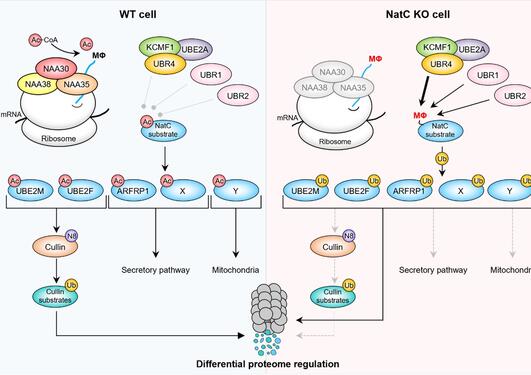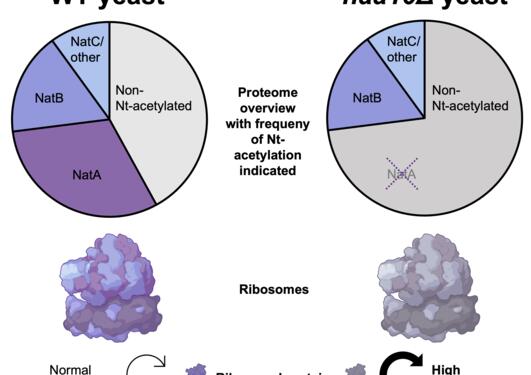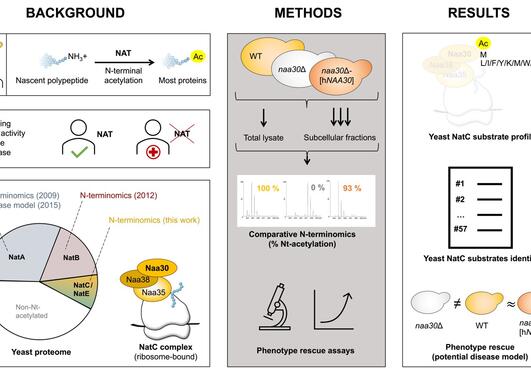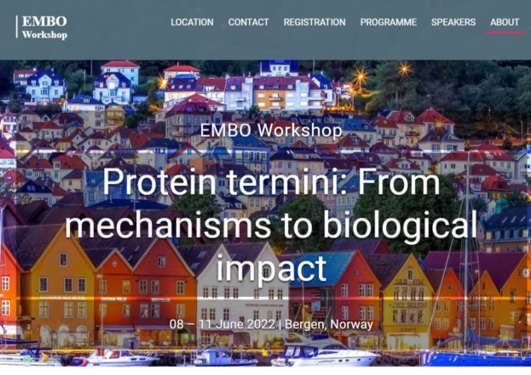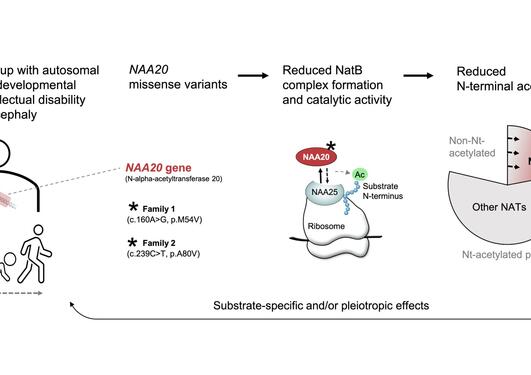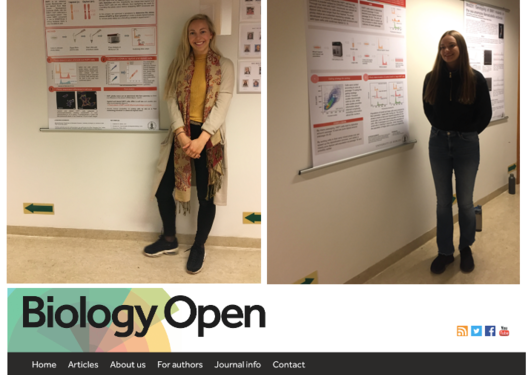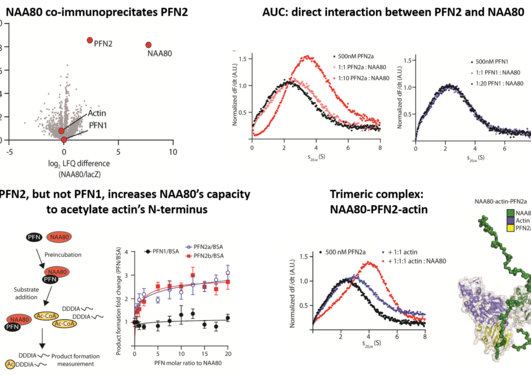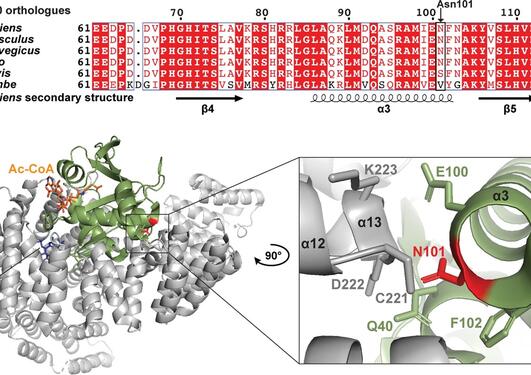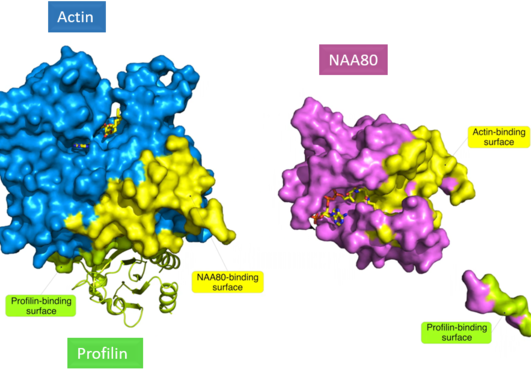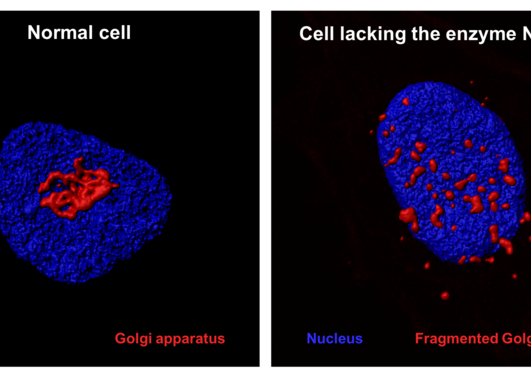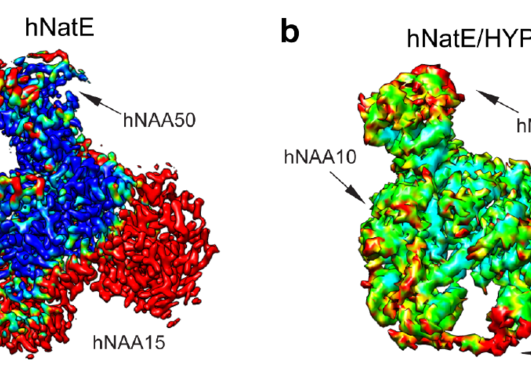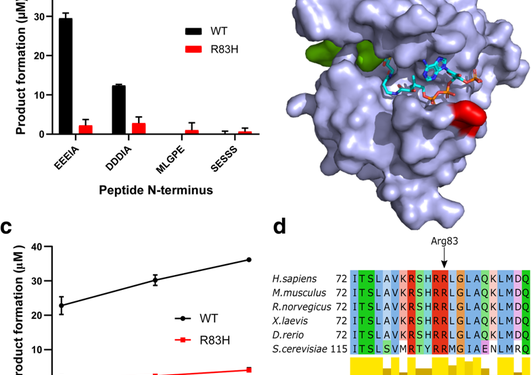News archive for Translational Protein Research
The human genome was sequenced many years ago and our ~20.000 genes are mostly defined. However, a large portion of our proteins, the products encoded by the genes and involved in all biological processes, remain functionally unexplored. University of Bergen researchers recently solved the structure and function of another uncharacterized human protein that turns out be linked to kidney disease.
Oxygen is vital for human life and so is our ability to respond to low oxygen levels. Researchers at the University of Oxford and University of Bergen have uncovered new factors defining how human cells respond to hypoxia.
Researchers from the University of Bergen (UiB) have uncovered that proteins use a common chemical label as a shield to protect them from degradation, which in turn affects motility and aging.
The impact of the most common protein modification, N-terminal acetylation, has remained a conundrum in the field since its very origin. A new UiB article adds a piece to this puzzle.
Budding yeast is a useful model system in molecular biology. Here, researchers in Bergen and Ghent used it to define one of the most abundant protein modifications in eukaryotes: N-terminal acetylation.
In June 2022, Bergen will host an EMBO Workshop focusing on biological regulation via proteins, more specifically protein ends. This emerging scientific theme will gather scientists from all over the world including more than 30 invited speakers.
Variants in different genes may cause developmental delay and various syndromes. Researchers from USA, Saudi Arabia and Norway recently uncovered pathogenic gene variants causing developmental delay and intellectual disabilities in a gene not previously linked to genetic disease.
Around 600 children are born with congenital heart disease in Norway each year. Little is known about the causes of congenital heart defects. A new international study involving researchers from University of Bergen and Haukeland University Hospital shows that the NAA15 protein can play an important role.
Ine and Emilie were attending a project course priming them for lab work. They ended up co-developing a method to quality control a cell model which is used by thousands of researchers worldwide.
Actin is modified by N-terminal acetylation which regulates its role in steering cellular architecture and cell motility. Now the machinery performing this acetylation is uncovered.
Several variants of the NAA10 gene have been found in patients suffering from developmental delay and hemihypertrophy. NAA10 steers the most common protein modification in humans: N-terminal acetylation.
On Thursday 12th of March, the University of Bergen was shut down on short notice. Employees and students left their study and workplaces, worried about the recently declared pandemic situation and how the next weeks and months would be like.
Actin is the most abundant protein in human cells and is involved in numerous functions including steering cellular architecture, cell motility and cell division. Recently, UiB researchers identified NAA80 as a long-sought actin regulator. Now, the structure of NAA80 bound to actin and profilin reveals its mechanism of action.
During his Erasmus internship in the Arnesen lab, Tobias B. Beigl took great interest in his project on the recently identified NAA80 enzyme. Beigl was on an interesting and important research track and stayed on for a Master’s project trying to figure out why cells lacking NAA80 typically had a more fragmented Golgi apparatus. He recently published his findings in the scientific journal... Read more
In human cells, N-terminal acetylation is among the most common protein modifications. Now, researchers at the University of Pennsylvania and the University of Bergen have revealed the structural and biochemical properties of the major molecular machine involved in this process. Cancer cells require this enzyme for survival and proliferation.
Monica Hellesvik has been one of the pioneers to test the new TIRF microscope at the department. She needed to look closely at cell adhesive properties and the TIRF microscope was the perfect tool for it since it is particularly well suited for studying structures closest to the glass slides.
N-terminal acetylation is a very common protein modification and NAA10 is the major responsible enzyme in human cells. Here we found a novel pathological NAA10 variant, NAA10 p. (R83H), in two boys with developmental delay and intellectual disabilities.
Arnesen Lab reveals that the global level of N-terminal acetylation, a highly abundant protein modification in eukaryotes, remains stable in starving yeast cells despite an overall decrease in the cellular level of acetyl-CoA. The findings, described in the December issue of Molecular & Cellular Proteomics¸ represent the first comprehensive study of metabolic regulation of N-terminal... Read more
Pages
- June 2025 (1)
- November 2024 (1)
- October 2023 (1)
- August 2023 (1)
- December 2022 (1)
- December 2021 (1)
- July 2021 (1)
- February 2021 (1)
- November 2020 (1)
- September 2020 (3)
- April 2020 (1)
- March 2020 (1)
- February 2020 (1)
- December 2019 (1)
- June 2019 (1)
- March 2019 (2)
- March 2017 (1)
- December 2015 (1)
- July 2015 (1)
- June 2015 (1)
- March 2015 (1)
- December 2014 (1)
- November 2014 (1)
- December 2013 (1)
- April 2013 (1)
- February 2013 (1)
- January 2013 (1)


